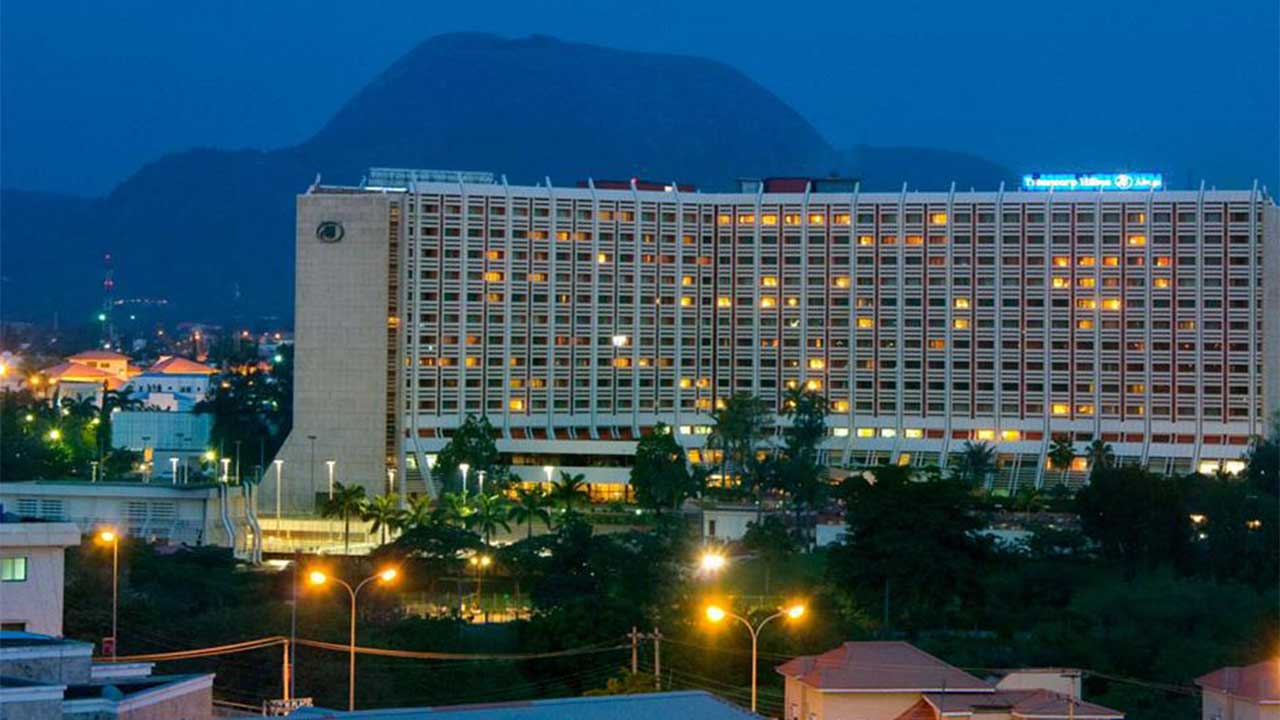Transcorp Hotels is gearing up to launch a massive 5,000-capacity event centre and further its ambitious expansion plans both across Nigeria and Africa.
Dupe Olusola, the Managing Director/Chief Executive Officer of Transcorp Hotels, unveiled this plan during an investor call on Friday.
This announcement follows the recent divestment of its 100% stake in Transcorp Hotels Calabar Limited to Eco Travels and Tours, an indigenous hospitality firm, as revealed in a corporate filing on the Nigerian Exchange Limited.
Olusola outlined the company’s vision for expansion, emphasizing its commitment to establishing a stronger presence not only in Abuja but also across Nigeria and eventually transitioning to the African continent.
She expressed excitement about the upcoming launch of the event centre, slated for the third quarter of this year, which is expected to accommodate thousands of guests.
“We are very confident that this would encourage and attract further business that goes outside of Nigeria to us,” remarked Olusola, highlighting the potential of the event centre to attract international clientele.
Olusola also disclosed plans for the development of a new five-star hotel in Ikoyi, Lagos, underscoring the company’s strategic focus on growth and diversification.
The key drivers of Transcorp Hotels’ performance were also outlined during the investor call. Olusola emphasized the importance of leveraging digital platforms, such as Aura, to revolutionize bookings, engage with guests, and drive revenue.
Also, the company aims to upgrade its technology and enhance guest experiences while optimizing operational costs without compromising quality.
Despite regulatory constraints delaying the Ikoyi project, Olusola assured investors that progress is being made, with the acquisition of additional land and ongoing negotiations with vendors for construction and fundraising.
Meanwhile, Oluwatobiloba Ojerinde, the Chief Financial Officer of Transcorp Hotels, provided insights into the firm’s financial performance for 2023.
Ojerinde highlighted a remarkable 72% growth in gross profit and attributed the increase in operating expenses to improved operational activities.
Despite challenges posed by inflation and currency devaluation, Transcorp Hotels demonstrated resilience by maintaining an income-to-cost ratio of 85%, reflecting the company’s commitment to operational efficiency and cost-saving strategies.
With its strategic expansion initiatives and robust financial performance, Transcorp Hotels is poised to strengthen its foothold in the hospitality sector, both domestically and across the African continent, positioning itself as a formidable player in the global hospitality landscape.


 Forex2 weeks ago
Forex2 weeks ago


 Naira2 weeks ago
Naira2 weeks ago
 Billionaire Watch2 weeks ago
Billionaire Watch2 weeks ago




 Naira2 weeks ago
Naira2 weeks ago




 Naira2 weeks ago
Naira2 weeks ago




 Naira4 weeks ago
Naira4 weeks ago


 Naira6 days ago
Naira6 days ago
 Banking Sector4 weeks ago
Banking Sector4 weeks ago

















